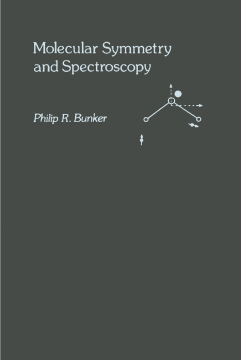
Additional Information
Book Details
Abstract
Molecular Symmetry and Spectroscopy deals with the use of group theory in quantum mechanics in relation to problems in molecular spectroscopy. It discusses the use of the molecular symmetry group, whose elements consist of permutations of identical nuclei with or without inversion. After reviewing the permutation groups, inversion operation, point groups, and representation of groups, the book describes the use of representations for labeling molecular energy. The text explains an approximate time independent Schrödinger equation for a molecule, as well as the effect of a nuclear permutation or the inversion of E* on such equation. The book also examines the expression for the complete molecular Hamiltonian and the several groups of operations commuting with the Hamiltonian. The energy levels of the Hamiltonian can then be symmetrically labeled by the investigator using the irreducible representations of these groups. The text explains the two techniques to change coordinates in a Schrödinger equation, namely, (1) by using a diatomic molecule in the rovibronic Schrödinger equation, and (2) by a rigid nonlinear polyatomic molecule. The book also explains that using true symmetry, basis symmetry, near symmetry, and near quantum numbers, the investigator can label molecular energy levels. The text can benefit students of molecular spectroscopy, academicians, and investigators of molecular chemistry or quantum mechanics.
